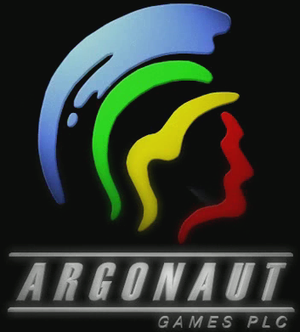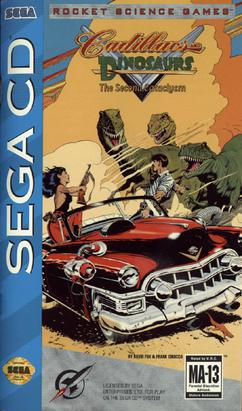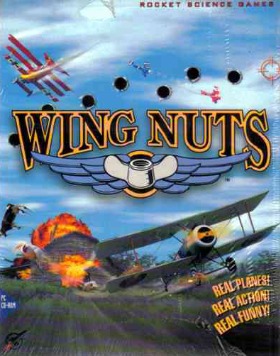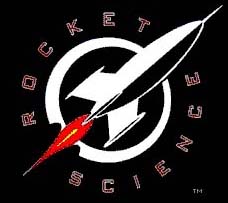
The Sega VR is an unreleased virtual reality headset developed by Sega in the early 1990s. Planned as an add-on peripheral for the Sega Genesis and only publicly showcased at a number of trade shows and expositions, its release was postponed and later cancelled outright after Sega ran into development issues. At least four in-progress games for the hardware were in development before its cancellation.
A micropayment is a financial transaction involving a very small sum of money and usually one that occurs online. A number of micropayment systems were proposed and developed in the mid-to-late 1990s, all of which were ultimately unsuccessful. A second generation of micropayment systems emerged in the 2010s.

Sega AM Research & Development No. 3, known as Hitmaker Co., Ltd. from 2000 to 2004, is a defunct division of Sega, a Japanese video game company. Established by 1993, AM3 was managed by Hisao Oguchi and developed a number of arcade games for Sega. Series introduced by AM3 include Virtual On, Sega Rally, Crazy Taxi, and Virtua Tennis. AM3's main focus was on arcade games until the release of the Dreamcast. Additionally, developers Tetsuya Mizuguchi and Kenji Sasaki developed Sega Rally Championship with AM3 before departing to form AM Annex, which later split into Sega AM9 and Sega AM5.

Argonaut Games PLC is a British video game developer founded in 1982. It was known for the Super NES video game Star Fox and its supporting Super FX chip, and for Croc: Legend of the Gobbos and the Starglider series. The company was liquidated in late 2004, and ceased to exist in early 2007. It was relaunched in 2024.
1996 saw many sequels and prequels in video games, such as Super Mario 64, Duke Nukem 3D, Street Fighter Alpha 2, Super Mario RPG, King's Field III, Virtua Fighter 3, along with new titles such as Blazing Heroes, NiGHTS into Dreams..., Crash Bandicoot, Pokémon Red/Green/Blue, Resident Evil, Dead or Alive, Soul Edge, Quake and Tomb Raider.
Combat flight simulators are vehicle simulation games, amateur flight simulation computer programs used to simulate military aircraft and their operations. These are distinct from dedicated flight simulators used for professional pilot and military flight training which consist of realistic physical recreations of the actual aircraft cockpit, often with a full-motion platform.

Batman Forever: The Arcade Game is a beat 'em up video game based on the movie Batman Forever. The subtitle is used to differentiate it from Batman Forever, another beat 'em up published by Acclaim at around the same time. One or two players, playing as Batman and Robin, fight Two-Face, the Riddler, and numerous henchmen.

Boffo Games was a video game developer founded in 1994 by Steve Meretzky, Mike Dornbrook, and Leo DaCosta. The logo was designed by Gayle Syska, formerly of Infocom. Boffo produced two games, Hodj 'n' Podj and The Space Bar, before closing its doors in 1997. Hodj 'n' Podj was originally designed for Media Vision but it divested all of its multimedia interests following a securities-fraud scandal and the title was purchased by Virgin Interactive. The Space Bar was originally to be published by Rocket Science Games (RSG) but SegaSoft bought out RSG and became the game's publisher.

The Space Bar is a 1997 graphic adventure game developed by Boffo Games and published by Rocket Science Games and SegaSoft. A comic science fiction story, it follows detective Alias Node as he searches for a shapeshifting killer inside The Thirsty Tentacle, a fantastical bar on the planet Armpit VI. The player assumes the role of Alias and uses his Empathy Telepathy power to live out the memories of eight of the bar's patrons, including an immobile plant, an insect with compound eyes and a blind alien who navigates by sound. Gameplay is nonlinear and under a time limit: the player may solve puzzles and gather clues in any order, but must win before the killer escapes the bar.

Virtual On: Cyber Troopers is a 3D action video game developed and published by Sega. A robot-themed shooter and fighter, it was developed on the Sega Model 2 hardware and released on arcades in January 1996 before ports to the Sega Saturn that year and to Windows the next year. Initially the game was to be released under the title "Virtual On" in Japan and "Cyber Troopers" in North America, but ultimately these two names were combined into a single title for both regions.
Virtua Fighter is a series of fighting games created by Sega AM2 and designer Yu Suzuki. The original Virtua Fighter was released in December 1993 and has received four main sequels and several spin-offs. The highly influential first Virtua Fighter game is widely recognized as the first 3D fighting game released. The latest mainline release was Virtua Fighter 5 in 2006; this version has since been continously updated.
SegaSoft, originally headquartered in Redwood City, California and later San Francisco, was a joint venture by Sega and CSK, created in 1995 to develop and publish games for the PC and Sega Saturn, primarily in the North American market.

Obsidian is a 1997 graphic adventure game developed by Rocket Science Games and published by SegaSoft. It was released for Microsoft Windows and Mac OS.

Rocket Jockey is a Windows video game created by Rocket Science Games and published by SegaSoft in 1996. The game's concept was developed by designer/lead programmer Sean Callahan, paired with an alternate reality 1930s America setting, conceived by VP of development/creative director Bill Davis. The player jets at high speed inside a grassy, enclosed sports arena on a rocket sled that is always in motion and chiefly steered with two grappling-hook guns mounted on its flanks. The rocket can change speeds but always flies about three feet off the ground unless it is engaged in one of the games' frequent and often-comic collisions.

Cadillacs and Dinosaurs: The Second Cataclysm is a rail shooter video game made by Rocket Science Games based on the comic book Xenozoic Tales. The game was originally released in 1994 for Sega CD and later IBM PC compatibles.
Light-gun shooter, also called light-gun game or simply gun game, is a shooter video game genre in which the primary design element is to simulate a shooting gallery by having the player aiming and discharging a gun-shaped controller at a screen. Light-gun shooters revolve around the protagonist shooting virtual targets, either antagonists or inanimate objects, and generally feature action or horror themes and some may employ a humorous, parodic treatment of these conventions. These games typically feature "on-rails" movement, which gives the player control only over aiming; the protagonist's other movements are determined by the game. Games featuring this device are sometimes termed "rail shooters", though this term is also applied to games of other genres in which "on-rails" movement is a feature. Some, particularly later, games give the player greater control over movement and in still others the protagonist does not move at all. On home computer conversions of light-gun shooters, mouse has been often an optional or non-optional replacement for a light gun.

Periscope is an electro-mechanical arcade shooting submarine simulator. Two companies developed similar games with the name. The first, initially called Torpedo Launcher, was designed by Nakamura Manufacturing Co. and released in Japan in 1965, as the first arcade game Masaya Nakamura built. Sega Enterprises, Ltd. also built and released Periscope in Japan in 1966, as one of its first produced arcade games.

Loadstar: The Legend of Tully Bodine is a video game developed and published by Rocket Science Games for the Sega CD in 1994 and MS-DOS compatible operating systems in 1995.

Wing Nuts: Battle in the Sky is a game published by BMG Interactive Entertainment and developed by Rocket Science Games for DOS in 1995.













